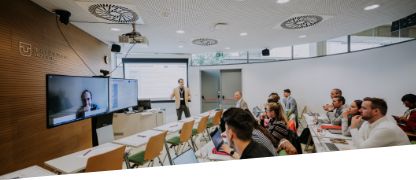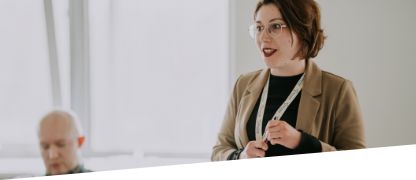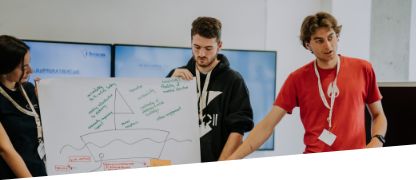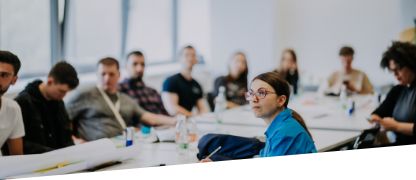ADLER is a wood coatings producer. It is a Tyrolean family business steeped in tradition. Innovative spirit, quality awareness, service and sustainability are the building blocks of its success.
Associated Partners
Associated Partners are regional and local authorities, businesses, and citizens who participate and contribute to both the Ulysseus long-term mission and to our regional development and to shape the future of the European Higher Education. They are involved in the co-creation and design thinking processes, in the plans and structures and in the programs of activities of Ulysseus.
Discover the full list of Ulysseus European University Associated Partners with more than 150 organisations.
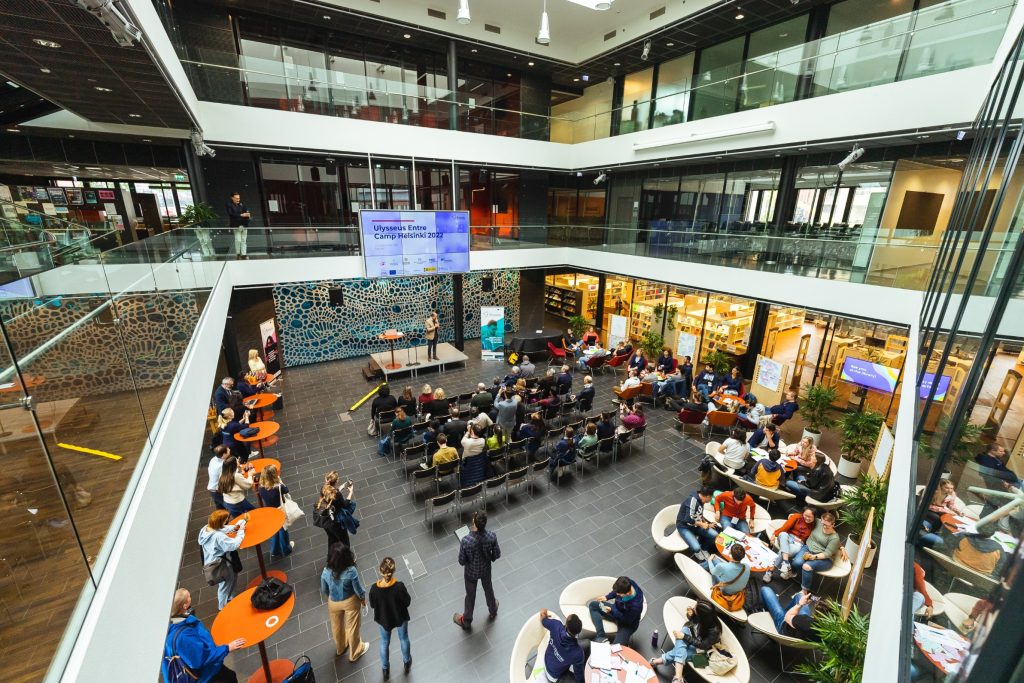
Filter & Search
Close/Open filterScreening services for academic research institutions and industry
AGEL is the most successful private healthcare provider in Central Europe. It currently operates hospitals, polyclinics, a network of pharmacies, laboratories, distribution companies and other specialized medical facilities in the Czech Republic. It has been operating in Slovakia since 2006 through its subsidiary AGEL SK and operates twelve hospitals, a specialized hospital in Bratislava, an occupational health service and other companies related to the provision of health care. AGEL SK continues in Slovakia with its long-term goal of providing effective health care in economically stable medical facilities that it operates. The effort is to ensure their further development, which will be reflected in the growth of the quality of health services for the residents of the respective region. AGEL SK a.s. focuses on the development of hospitals not only as a whole, but also the expansion of care in individual fields of medicine. The company’s priority is quality, safe and high-quality healthcare. We place special emphasis on education in prevention. Continuity of treatment is an important element on the road to recovery for us. We support science, research, education, we cooperate intensively with schools and universities.
We develop formats of training, education, dissemination, communication, outreach, industrial research and -design for cutting-edge alliances or project teams who aim to advance one or more elements of the European Green Deal. Especially between regions, territories, and Brussels.
Our new NGO co-opened the 1st New European Bauhaus Festival with UvdL in June 2022 and we are a registered trademark in the Nice Classes 41 and 42 with EUIPO.
Certification and brokerage of renewable energy.
Association of women in engineering and architecture based in Milan and Rome in Italy. Activities towards STEM and female research paths and career enhancement. Contacts at national and international levels. IH Energy & Smart cities
Development of software for the implementation of augmented reality and production of holographic projections
Argos is a consulting company made up of 11 people. We are dedicated to the design and development of educational, environmental and social participation projects as well as the promotion of science in order to improve our social and natural surroundings in the world we live in.
Our work includes training of teaching staff, developing teaching material and event organisation. Events include the annual “Feria de la Ciencia – Science Fair and the “Congreso Internacional sobre Investigación en la Didáctica de las Ciencias” – The International Congress of Research into the Teaching of the Sciences.
“La Feria de la ciencia” is a meeting place for research centres, universities, businesses and more than 130 educational institutions. It is held in May and is currently one of the biggest events for the promotion of science in our country with over 27000 visitors a year. If you go to this event, you will see 7000 students teaching science, and 800 teachers accompanying them.
Argos also organises the International Congress of Research into the Teaching of the Sciences, sponsored by the magazine “Enseñanza de las Ciencias”, with over 800 participants, predominantly Latin American. The next edition will be held at the University of Lisbon. As well as this, we also advise over 300 Andalusian educational facilities on the development of Environmental Education programmes with projects such as the “Red Andaluza de Ecoescuelas – Andalusian Network of Eco Schools and others, all encouraging healthy lifestyle habits and the promotion of science. All of this using learning methodologies based on research.
Young entrepreneurship diffusion
Austria Wirtschaftsservice Gesellschaft mbH (aws) is the promotional bank of the Austrian federal government.
The Coatings division of BASF is a global expert in the development, production and marketing of innovative and sustainable automotive OEM and refinish coatings, decorative paints as well as applied surface treatments for metal, plastic and glass substrates in a wide range of industries. This portfolio is supplemented by “Beyond Paint Solutions”, which enable new applications with innovative surfaces. We create advanced performance solutions and drive performance, design and new applications to meet our partners’ needs all over the world. BASF shares skills, knowledge and resources of interdisciplinary and global teams for the benefit of customers by operating a collaborative network of sites in Europe, North America, South America and Asia Pacific. Besides our core business, units like the Digital Incubation Unit discovers and validates digital business models and corporate ventures for BASF’s Coatings division.
Ski resort
Testing for development and regestration of plant treatments
The Bezirksregierung Münster is one of five district governments in North Rhine-Westphalia. It represents the state government in the Münster administrative district. It bundles regional forces and aims to create consensus.
Patient specific implant production with medical additive manufacturing/3D printing and bioadditive manufacturing/bioprinting
Bionorica research GmbH in Innsbruck (Austria) is a subsidiary of Bionorica SE (www.bionorica.com), a leading German manufacturer of herbal medicines worldwide. The business is committed to discovering and utilizing active plant ingredients for the development of rational phytopharmaceuticals. Our research is focused on analytical investigation of natural products and complex herbal mixtures.
The Chamber of Commerce of Seville (CCSEV) is as an advisor body of Public Authorities, representing the general interest of companies, and providing services to entrepreneurs and SMEs.
The goal of the CNIC is to create sustainable knowledge-based industry in the Eastern Slovakia region covering i) progressive material and biomedical technologies, ii) green and clean technologies and iii) quantum and information technologies, together with a strongly related development of social fields including the silver economy and healthy lifestyle.
CEELABS is a spin-off of the Technical University of Košice (TUKE) and is based in the University Science Park TECHNICOM. CEELABS is a R&D company in the field of the Internet of Things, information technology and energy sector. The company develops solutions for the green future of cities, optimizing consumption targeting reduction of CO2 footprint.
National platform for further development of Articifial Intelligence in Slovakia. Eco-system builder.
It is the leading provider of the general hospital services for nearly a million and a half people in the Provence Alpes-Côte d’Azur region
The Nice Côte d’Azur Chamber ofCommerce and Industry works to ensure that Côte d’Azur entrepreneurs can create, innovate and develop under the best possible conditions
Cibernos is a Spanish company consolidated in the technology market. It was founded in 1966 and currently has more than 1,300 employees.
Within the City’s Economic Development division, leading a team of ten specialists focusing on innovation and startup ecosystem development in Helsinki and the metropolitan area.
The team works closely with higher education institutions, business incubators and accelerators, financiers and other public and private sector stakeholders, to provide the best possible conditions and growth opportunities for businesses and aspiring entrepreneurs.
Municipal Government
In terms of its size and importance in the Slovak Republic, the city of Košice ranks right after the capital Bratislava. It lies in the eastern part of Slovakia. The advantages of this location, near the borders of three states and lying on important domestic and international transport routes, translate into the preconditions for good commercial connectivity. This is significantly enhanced by the existing railway junction and airport with international status. Košice has a strong economic background, and the city creates employment opportunities for the population of the surrounding region as well as its own. The total number of registered employees in the city as a whole, the great majority work in the industrial sphere.. The education and transport sectors are also strongly represented here. The education system is significantly represented in the city, with over 45 basic schools, 10 grammar schools, 4 commercial academies, and 15 specialized secondary schools covering industrial technologies, agriculture, health care and the arts. There is also the Technical University with 9 faculties, P. J. Šafárik University with 5 faculties, the University of Economics and the University of Veterinary Medicine.
DEFENDING DEAF PEOPLE’S RIGHTS
The Communauté d’agglomération de Sophia Antipolis (CASA) is the communauté d’agglomération, an intercommunal structure, centred on the city of Antibes. It is located in the Alpes-Maritimes department, in the Provence-Alpes-Côte d’Azur region, southeastern France. It was created in 2002, and takes its name from the technology park Sophia Antipolis, the largest Technopolis in Europe.
Genoa is a local authority and is the capital of Regione Liguria, a region in northern part of Italy. Genoa’s municipality has set different goals, such as innovating the use of territory, modernize the infrastructure, regenerate the urban environment and improve the governance of the city system.
The City of Genova is actively involved in many research projects that focus on economy, employment, city management, ort and infrastructures and eco-sustainable growth, in addition to natural environment care and green mobility.
The Confederation of Employers and Industries of Andalusia (CEA) is a regional, professional, confederative, inter-sectorial and non-profit organization. The CEA is the most representative business association in the region and is established in all the provinces of Andalusia, plus Ceuta and Melilla, and in all of its productive sectors. The CEA is directly composed by one hundred and seven sectorial and provincial associations from all over Andalusia and includes every type of business, from large companies and SME’s to the self-employed workers, and 141 companies directly associated to CEA as sponsors. Furthermore, there are approximately 180,000 indirectly associated companies and 764 indirectly affiliated business organizations t.
The Italian National Research Centre embraces all the science domains: it is the largest public research institution in Italy, the only one under the Research Ministry performing multidisciplinary activities. It is positioned within the first winners of European Funds for Horizon 2020 at international level.
Company that centralizes the organization of the main and largest Congresses and Touristic activities in Seville
Management of large cultural and edutainment venues
It deals with the support and development of the cultural and creative industry.
Scientific research and technological development.
Fundación Corporación Tecnológica de Andalucía (CTA) is a regional public-private partnership (PPP) that was created in 2005 as joint effort of Andalusia regional government and a group of key companies, to trigger innovation activities performed by the Andalusian private sector, and to connect these activities with academia and society, supporting public bodies innovation policy implementation and promoting world-class research and innovation in a transition region. Currently, CTA is owned by more than 150 companies, 70% of them SMEs, in seven main European industrial priority sectors: ICT, aerospace and productive processes, agri-food, biotechnology, building and civil engineering, energy and environment, and leisure and tourism. CTA’s main activity during these years has been advising, mentoring and funding (with own funds) innovation projects lead by companies and with a clear and measurable market application in the short and medium term, being therefore deeply embedded in the productive system. For the past 15 years, more than 700 projects have been supported with a total investment of some €170 million, having a leverage effect to mobilise additional private investment of ca. 515 M€. This way, CTA excels as a unique organisation, acting as a multi-sectorial innovation cluster and, far from just funding, developing a holistic approach to innovation that paves the way for project results to be swiftly introduced to the market. CTA also acts as a catalyst of collaboration, disseminating results, creating partnerships between its members and research groups, both local and international, and supporting the creation of joint research projects. In addition, CTA organises technology awareness events and training for companies on key emerging areas. Regarding the connection with public bodies, CTA is a policy advocacy body, providing strategic advice on innovation and technology to governments, from regional to international frameworks.
Cultural Fit and HR Tech
Trustworthy partner for Digitalization and information and communication technologies services
Development, design, construction and operation of renewable energy power plants
Co-operation and knowledge sharing related educational technologies and AI solutions
Evaluation of international programs and projects. quality assurance systems and research of education and training.
We are committed to energy transition towards a decarbonised economy by responsible management in economic, social and environmental issues.
ERASMUS Münster e.V. is an independent non-profit organisation whose purpose is to support foreign students who come to Münster for one or two semesters as part of an exchange programme. Our aim is to promote the intercultural environment in Münster and organise a wide range of social, cultural and sport events.
Erasmus Student Network Slovakia (ESN Slovakia) is a non-profit student organisation. Our mission is to represent international students, thus provide opportunities for cultural understanding and self-development under the principle of Students Helping Students. Every year, 10 ESN sections from Bratislava to Košice take care of almost 2,000 Erasmus students. ESN SK represents international students and organize trips, cultural and social activities and events for them.
Internationalization of education in our city and constant support to the students who come every year.
Eurac Research is a private research center based in Bolzano (South Tyrol) with researchers from a wide variety of scientific fields. Our research addresses the greatest challenges facing us in the future: people need health, energy, well-functioning political and social systems and an intact environment, seeking the answers in the interaction between many different disciplines
Association of companies located in the Sophia Antipolis Technology Park
The European and International Affairs Sector of Liguria Region aims at promoting the knowledge of the funding programmes directly managed by the European Commission on the topics of major interest for Liguria Region through the organisation of training and information events and courses, ensuring the participation and inclusion of Ligurian stakeholders and citizens. The response to the calls for tenders of various European programmes allows the Sector, and consequently the Liguria Region, to create synergies with the stakeholders including the University of Genoa, the Municipalities, in-house companies, and with the other actors of the European territory in order to implement projects focused on relevant issues, such as social inclusion, sustainable territorial development, green infrastructures, climate change adaptation.
The dissemination of key themes promoted by the European Commission, such as sustainability, social inclusion and beauty, has found its concretisation in the event “The New European Bauhaus in Liguria – identity| inspiration| interaction| ideas| initiatives”, organised in June 2022, with the aim of promoting the exchange of knowledge and launching a path of reflection and innovation on the territory’s identity. In addition to the integration of New European Bauhaus principles in territorial planning, the Sector aims at the dissemination of transversal competences (“NEB skills”) considered fundamental to keep young people and the working-age population as a whole up-to-date with labour market evolutions, such as green skills or education in planning and entrepreneurial mentality. The topic is of particular relevance in 2023 (European Year of Skills) and it is fertile ground for the Sector’s cooperation with the academic world (in particular the University of Genoa) and the private sector. Thanks to the restart of the activities of its Office in Brussels, the European and International Affairs Sector aims at identifying and consolidating the essential institutional relations for the Liguria Region with the European Institutions and with the European networks of which the Region is already a member, including EUREGHA, ERRIN, NECSTouR.

